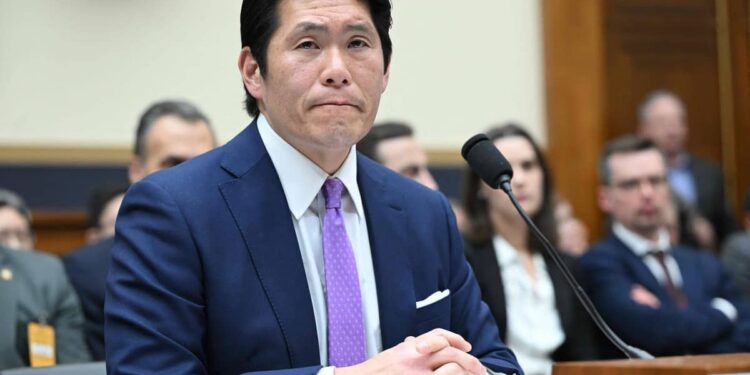The US special prosecutor responsible for investigating the withholding of confidential documents by Joe Biden defended his controversial comments on the president’s sometimes failing memory before the House of Representatives on Tuesday to justify his decision to give up prosecuting him.
• Read also: White House strikes back on Biden’s age after devastating report
• Read also: ‘I don’t have memory problems,’ Biden says after devastating report
• Read also: No charges brought against Biden for withholding confidential documents, prosecutor announces
In his report published in February, special prosecutor Robert Hur recommended a dismissal of the case, arguing in particular that a jury would be reluctant to convict an “elderly man with a bad memory”. The camp of the 81-year-old Democratic president then denounced “gratuitous” and “inappropriate” comments.
“We have collected evidence that the president knowingly kept classified documents after the end of his vice-presidency (2009-2017, Editor’s note), while he was a private citizen,” Mr. Hur summarized Tuesday before two commissions of the House of Representatives, dominated by the Republicans.
“However, we have not gathered evidence beyond reasonable doubt,” he added.
“My mission was to establish whether the president had “knowingly” retained or disclosed confidential information,” recalled the special prosecutor.
“I could not conclude on this point without examining the president’s state of mind. For this reason, I had to take into account the president’s memory and his general mental state, and how a jury in a criminal court would perceive them,” he explained.
“My assessment in the report about the relevance of memory was necessary, accurate and fair,” he assured.
“I did not sanitize my explanation, nor unfairly denigrate the president,” insisted Robert Hur.
The appointment of Mr. Hur as special prosecutor in January 2023 followed the discovery in December 2022 and January 2023 of classified documents dating from the time when Joe Biden was vice-president, notably on the American military engagement in Afghanistan, in his home in Wilmington, Delaware (east), as well as in a former office.



